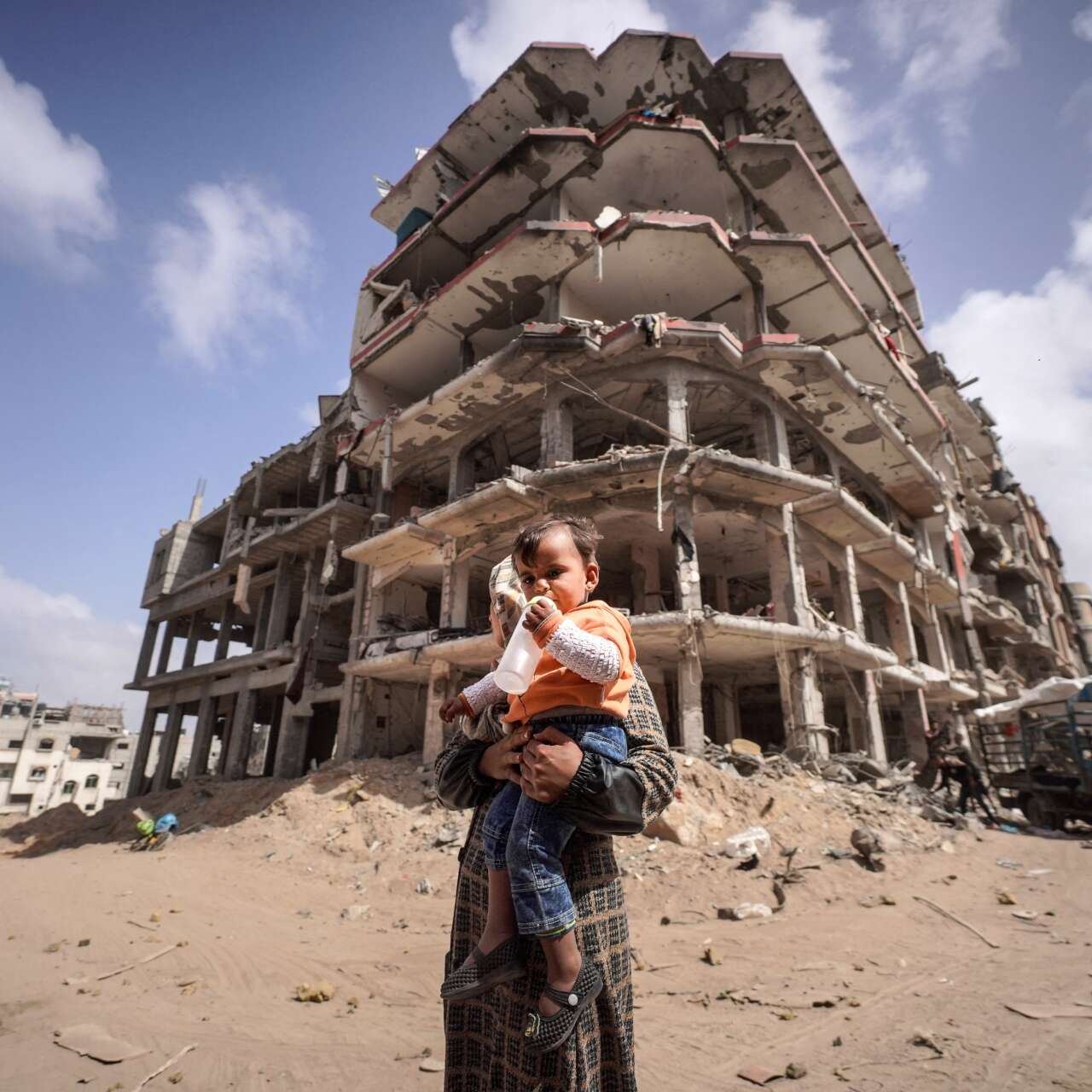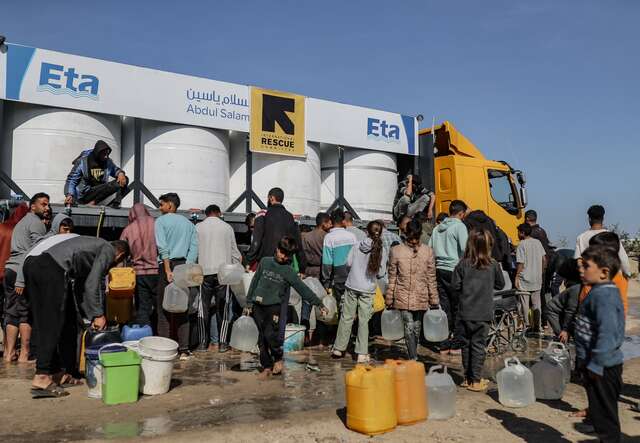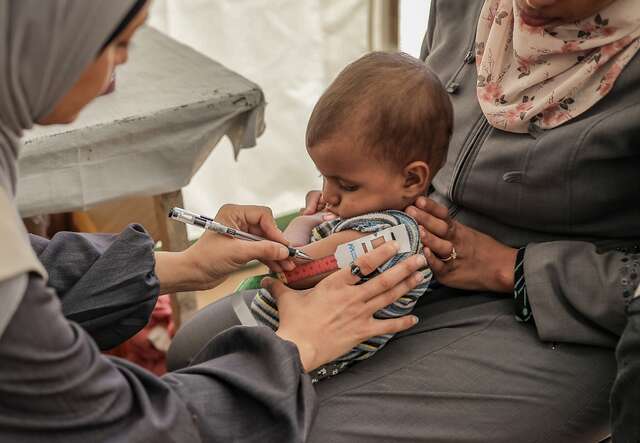
Why is it so hard to deliver aid in Gaza and other crisis zones?
Humanitarian access is a right—not a privilege. Here’s why it matters now more than ever.

Humanitarian access is a right—not a privilege. Here’s why it matters now more than ever.
Around the world, more than 305 million people are in need of humanitarian aid—lifesaving support that includes clean water, food, medical care and shelter. But in contexts like Gaza, civilians face enormous challenges when trying to access aid safely and with dignity.
The International Rescue Committee (IRC) is working in Gaza and other crisis-affected areas to deliver aid where it’s needed most. But in order to do so, aid organizations must be granted humanitarian access—the ability to reach people in need without obstruction, and without putting civilians or aid workers in harm’s way.
Humanitarian access refers to the ability of aid organizations to reach people in crisis with the humanitarian services they need—and the ability of those people to access these services with safety and dignity. Without it, families go without food, water and medical care. Lives are at risk every day that aid is delayed or denied.
For the people we serve, humanitarian access means being able to access essentials, like food, water, medical care and shelter, without fear of violence, discrimination or retaliation.
The IRC has warned that the Israeli government’s aid scheme for delivering aid in Gaza would lead to mass forced displacement of the civilian population, prevent vulnerable groups such as those with mobility issues and children from accessing aid, and make it nearly impossible to respond to the humanitarian crisis in Gaza.
Tragically, civilians have been killed while trying to access aid under this system.
“The solution is tragically simple,” writes IRC President and CEO, David Miliband.
Open all viable land crossings—not for hours and not with caveats, but at scale, with fast screening and consistency, to flood Gaza with aid immediately. Second, ensure unimpeded access for humanitarian organizations to reach children and their families—from Rafah to northern Gaza.
“A ceasefire remains vital,” adds Miliband. “Without an end to hostilities, no humanitarian corridor can function safely, Palestinian civilians cannot be reached at scale and the hostages will not return home.”

For humanitarian organizations like the IRC, humanitarian access refers to the ability to deliver aid directly to people in crisis—without delays, restrictions or danger. With proper humanitarian access, we can keep communities alive and healthy.
But in places including Gaza, severe restrictions are impacting the delivery of aid. Symbolic gestures, including costly and inefficient airdrops of aid, aren’t enough. Humanitarians need unfettered access to prevent starvation, disease and protect civilians.
The IRC has more than 5 tonnes of life-saving medical supplies ready to enter Gaza, that will treat thousands of people and offer critical support to a health system already collapsing. Yet with a near-total blockade on access into Gaza, it remains uncertain as to when we will be able to deliver these supplies.
Each humanitarian crisis is unique and requires a tailored response to meet the needs of those affected. Whether responding to a disease outbreak, natural disaster, conflict or other crisis, the IRC works closely with the communities we serve to identify and meet their needs. However, some common barriers to aid delivery include:
The IRC delivers life-saving aid in some of the world’s most difficult and dangerous places. Our teams work closely with local partners to identify and meet the needs of the communities we serve, and to ensure that aid reaches the most vulnerable.
Our emergency response teams are on standby, ready to deploy within 72 hours of a crisis—bringing expertise in logistics, health and protection to communities at risk.
Despite extreme challenges, IRC teams in Gaza are reaching Palestinians with lifesaving support every day. Working closely with trusted local partners, we’ve supported the health, education, safety and economic wellbeing of more than 430,000 people since the beginning of the latest escalation of conflict.
The IRC has also delivered food and water to camps for displaced Palestinians, distributed food and supported emergency medical services in the few hospitals still operating.
We are working to improve the lives of an additional 150,000 Palestinians by the end of 2025.

Funding is urgently needed to save lives. The IRC is on the ground in more than 40 countries around the world, delivering assistance to families in Gaza, Sudan and Ukraine. Our teams are working around the clock to save lives—but we need your help. Donate today.
The International Rescue Committee (IRC) helps people affected by humanitarian crises to survive, recover and rebuild their lives. We deliver lasting impact by providing health care, helping children learn, and empowering individuals and communities to become self-reliant, always with a focus on the unique needs of women and girls. Our work spans more than 40 crisis-affected countries, and we provide resettlement, asylum, and integration services in communities across the United States and Europe, including supporting refugees rebuilding their lives in the UK.